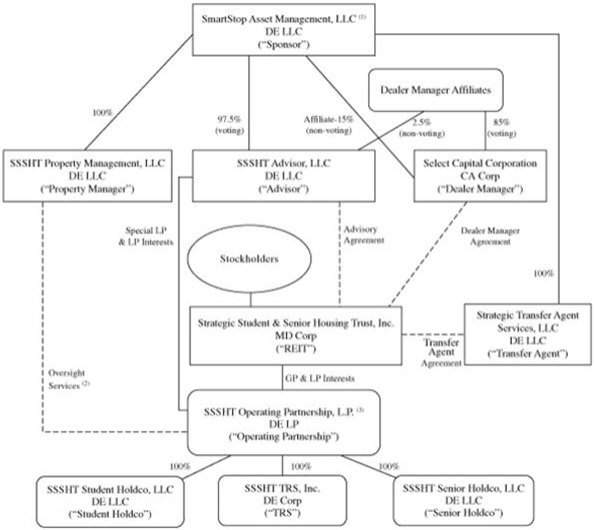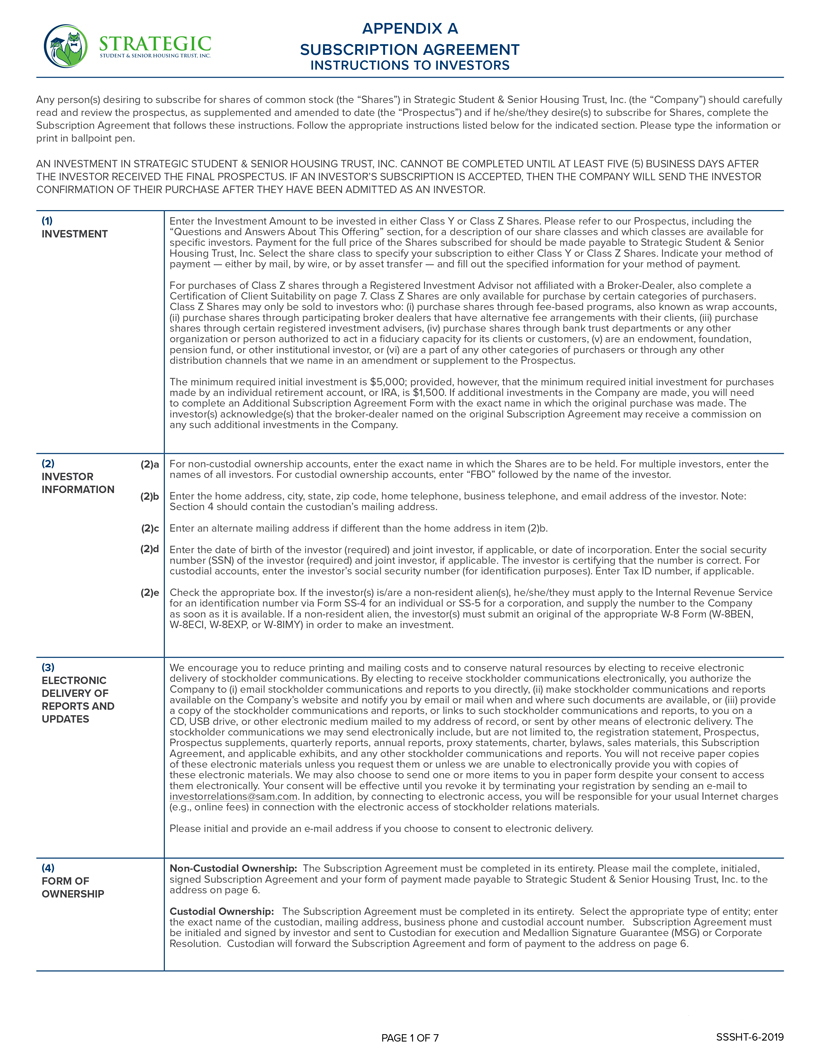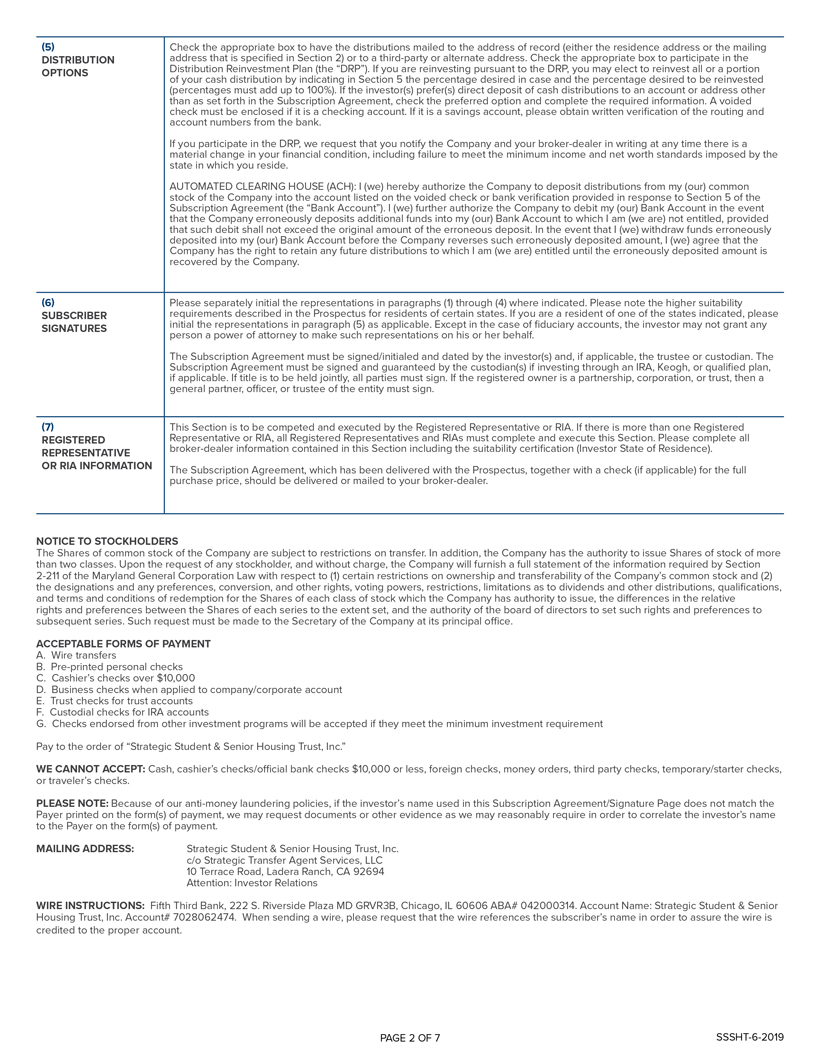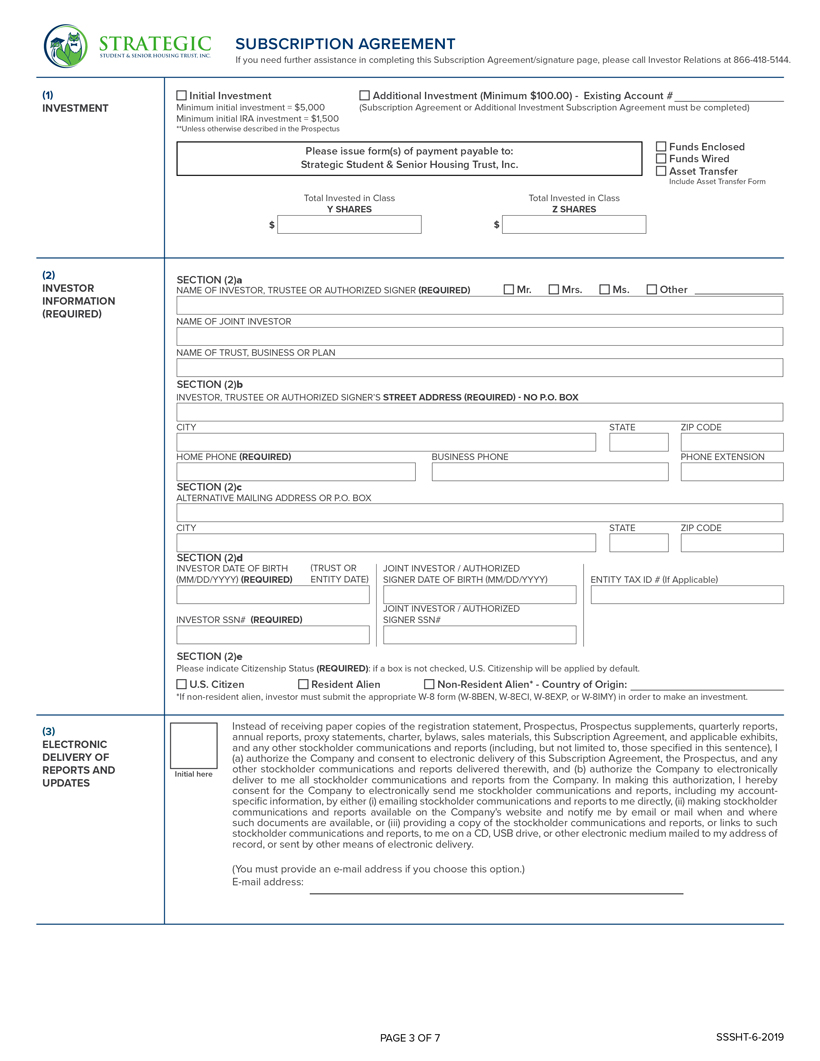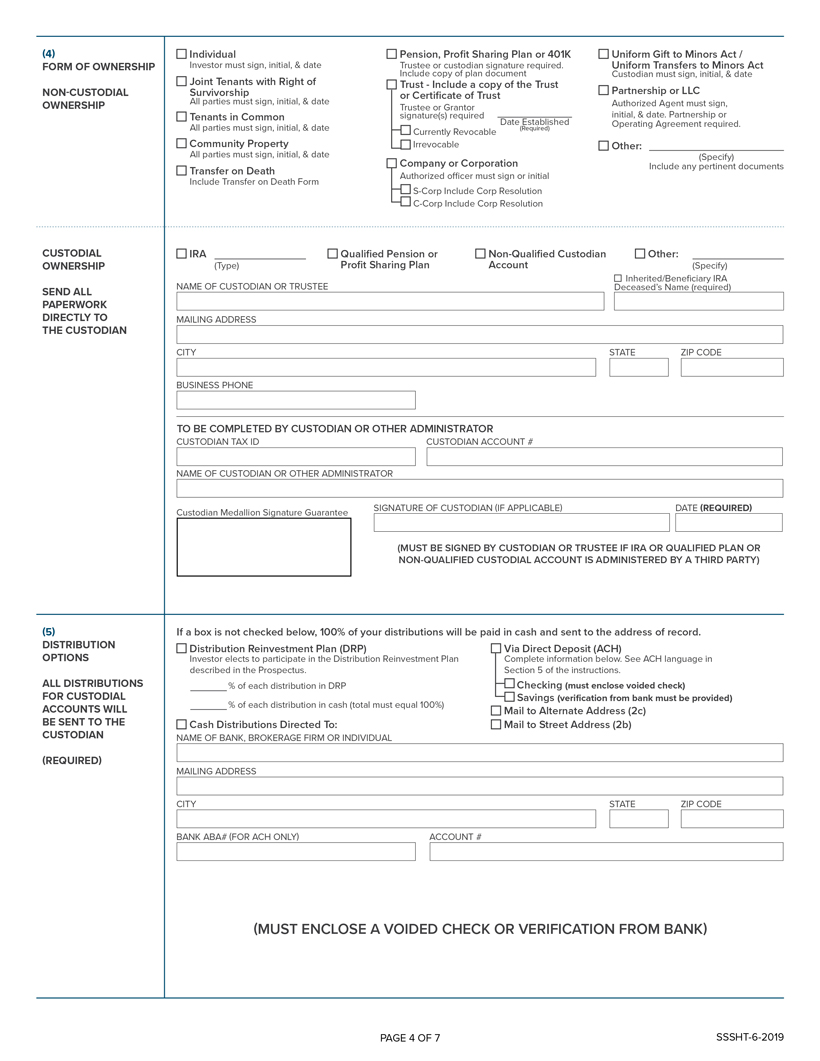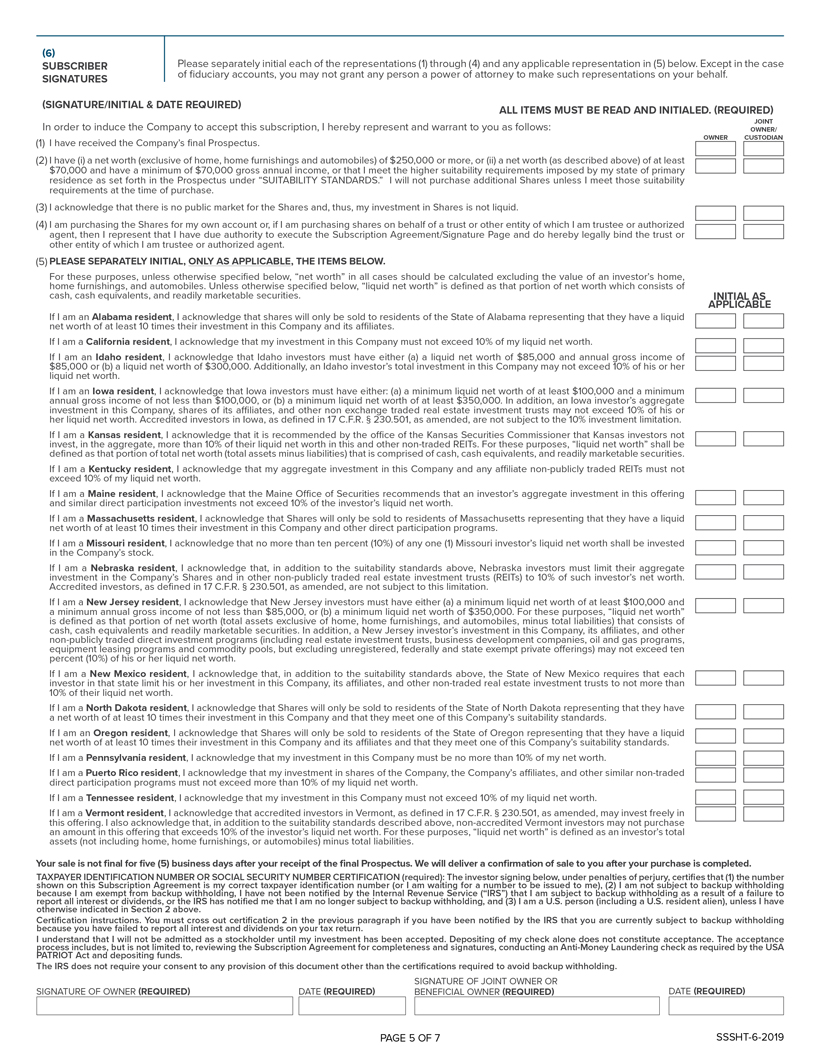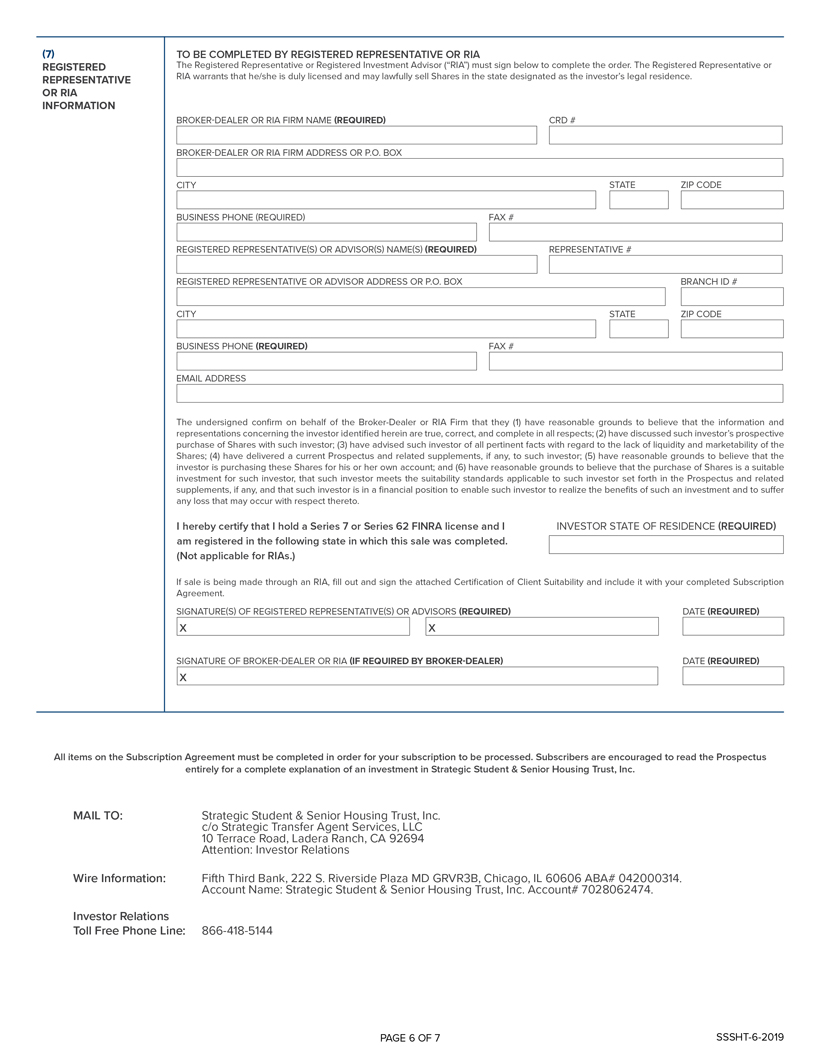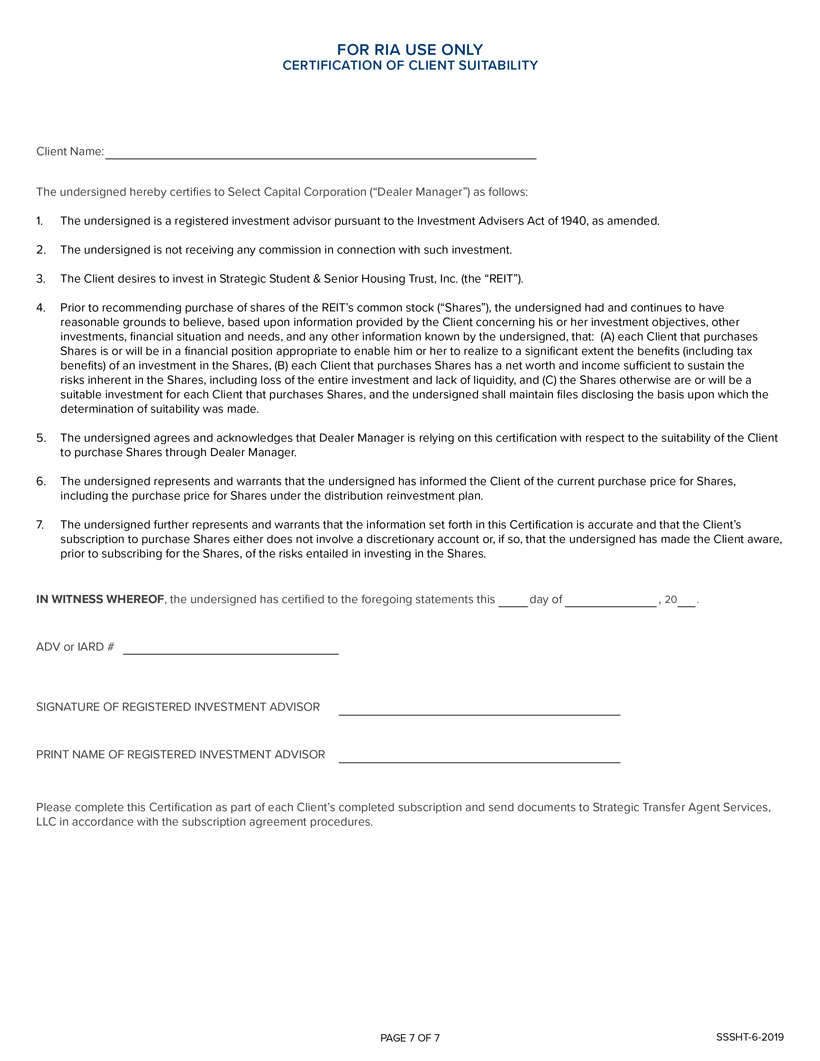Because our dealer manager is affiliated with our sponsor, you may not have the benefit of an independent review of the prospectus or our company as is customarily performed in underwritten offerings.
Our sponsor, indirectly through a subsidiary, owns a 15%non-voting equity interest in our dealer manager, Select Capital Corporation, and affiliates of our dealer manager own a 2.5%non-voting membership interest in our advisor. Accordingly, our dealer manager may not be deemed to have made an independent review of our company or the offering. See “Management — Affiliated Companies” for more information on our dealer manager. You will have to rely on your own broker-dealer to make an independent review of the terms of this offering. If your broker-dealer does not conduct such a review, you will not have the benefit of an independent review of the terms of this offering. Further, the due diligence investigation of our company by our dealer manager should not be considered to be an independent review and, therefore, may not be as meaningful as a review conducted by an unaffiliated broker-dealer or investment banker.
A failure in, or breach of, our operational or security systems or infrastructure, or those of our third party vendors and other service providers or other third parties, including as a result of cyber attacks, could disrupt our businesses, result in the disclosure or misuse of confidential or proprietary information, damage our reputation, increase our costs, and cause losses.
We rely heavily on communications and information systems to conduct our business. Information security risks for our business have generally increased in recent years in part because of the proliferation of new technologies; the use of the Internet and telecommunications technologies to process, transmit, and store electronic information, including the management and support of a variety of business processes, including financial transactions and records, personally identifiable information, and resident and lease data; and the increased sophistication and activities of organized crime, hackers, terrorists, activists, and other external parties. As resident, public, and regulatory expectations regarding operational and information security have increased, our operating systems and infrastructure must continue to be safeguarded and monitored for potential failures, disruptions, and breakdowns. Our business, financial, accounting, and data processing systems, or other operating systems and facilities, may stop operating properly or become disabled or damaged as a result of a number of factors, including events that are wholly or partially beyond our control. For example, there could be electrical or telecommunication outages; natural disasters such as earthquakes, tornadoes, and hurricanes; disease pandemics; events arising from local or larger scale political or social matters, including terrorist acts; and, as described below, cyber attacks.
Our business relies on its digital technologies, computer and email systems, software, and networks to conduct its operations. Although we have information security procedures and controls in place, our technologies, systems, and networks and, because the nature of our business involves the receipt and retention of personal information about our residents, our residents’ personal accounts may become the target of cyber attacks or information security breaches that could result in the unauthorized release, gathering, monitoring, misuse, loss, or destruction of our residents’, or other third parties’ confidential information. Third parties with whom we do business or who facilitate our business activities, including intermediaries, vendors, and the third party property managers that provide service or security solutions for our operations, and other third parties, could also be sources of operational and information security risk to us, including from breakdowns or failures of their own systems or capacity constraints. In addition, hardware, software, or applications we develop or procure from third parties may contain defects in design or manufacture or other problems that could unexpectedly compromise information security.
While we have disaster recovery and other policies and procedures designed to prevent or limit the effect of the failure, interruption, or security breach of our information systems, there can be no assurance that any such failures, interruptions, or security breaches will not occur or, if they do occur, that they will be adequately addressed. Our risk and exposure to these matters remain heightened because of the evolving nature of these threats. As a result, cyber security and the continued development and enhancement of our controls, processes, and practices designed to protect our systems, computers, software, data, and networks from attack, damage, or unauthorized access remain a focus for us. As threats continue to evolve, we may be required to expend additional resources to continue to modify or enhance our protective measures or to investigate and remediate information security vulnerabilities. Disruptions or failures in the physical infrastructure or operating systems that support our businesses and residents, or cyber attacks or security breaches of the networks, systems, or devices that our residents use to access our products and services, could result in resident attrition, regulatory fines, penalties or intervention, reputation damage, reimbursement or other compensation costs, and/or additional compliance costs, any of which could have a material effect on our results of operations or financial condition. Furthermore, if such attacks are not detected immediately, their effect could be compounded.
32




